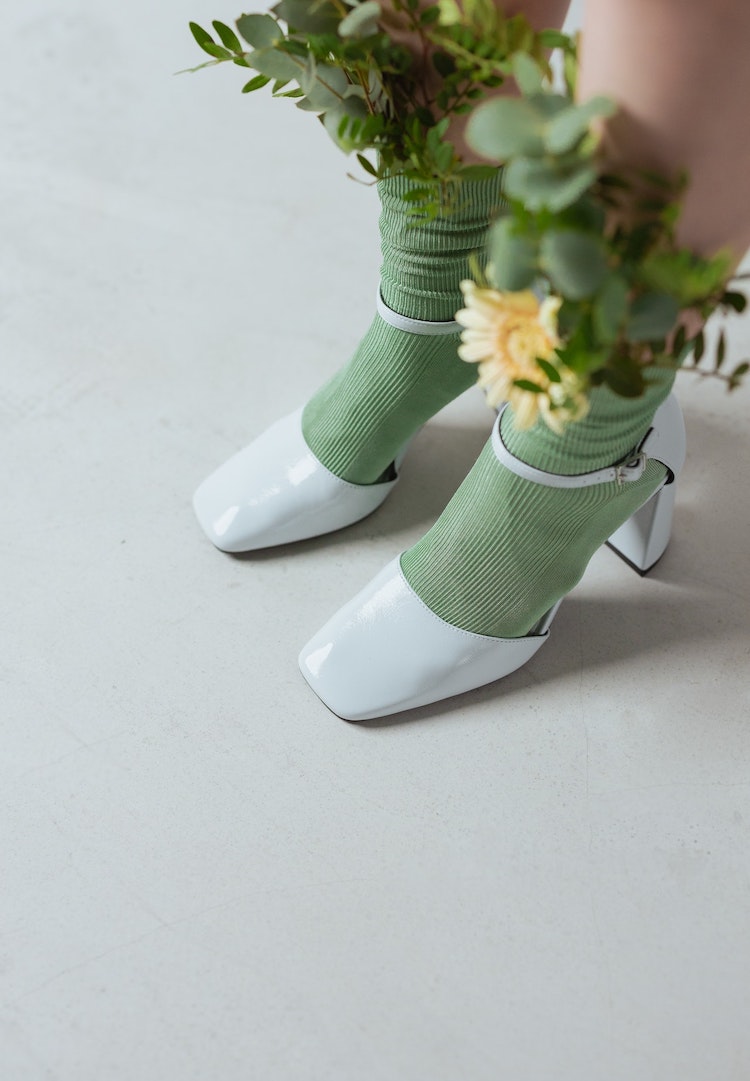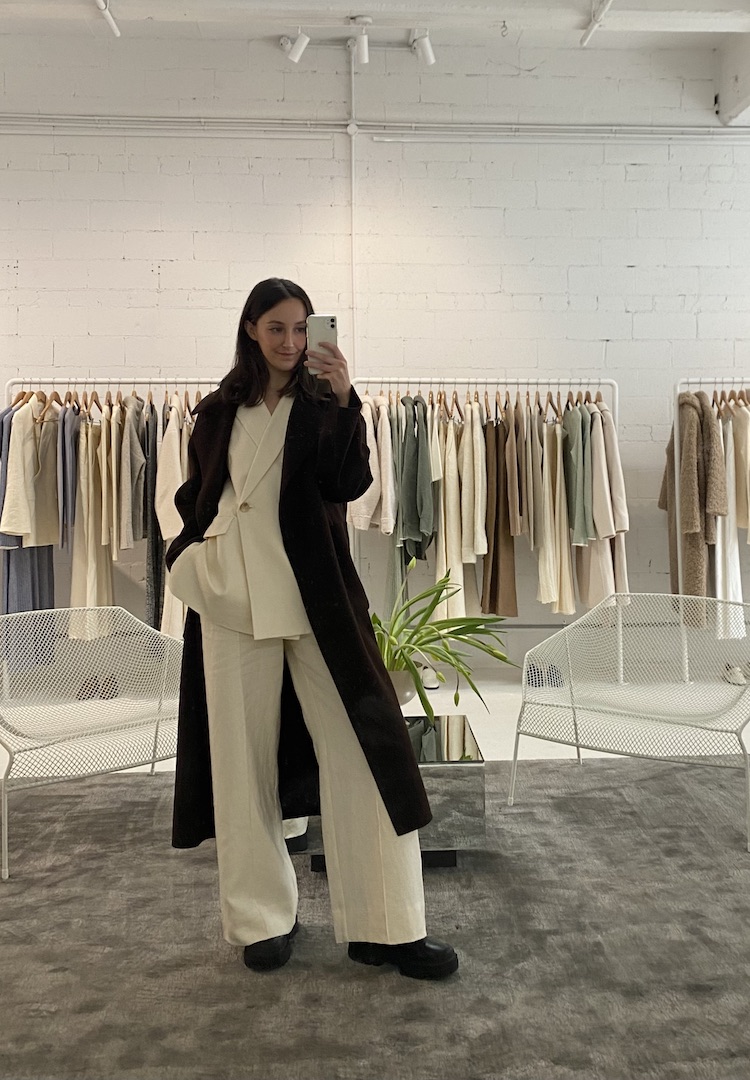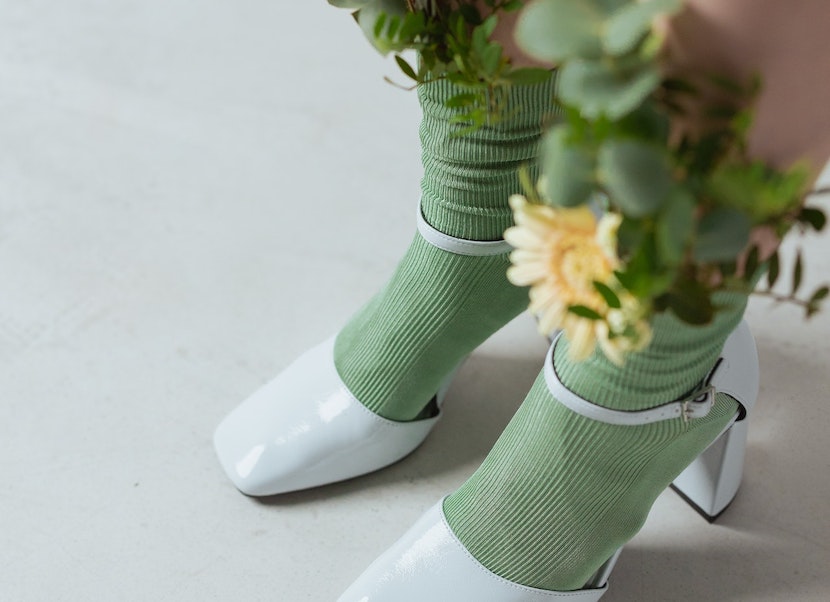Elk’s Head of Ethics and Sustainability on why more businesses should be creating roles like hers
WORDS BY Erika Martin
It’s clear that business as usual is no longer an option.
Melbourne-based label Elk is committed to ethical and sustainable fashion, releasing bi-annual collections handmade by the label’s ‘family’ of makers from planet-friendly fabrics. It aims to support a circular economy by supporting workers and creating high-quality, transeasonal pieces with a long lifespan.
Despite being a relatively small operation, Elk created a Head of Ethics and Sustainability role in the late 2010s to ensure the business continues to take an innovative, thoughtful and effective approach to slow fashion. Erika Martin, who has held that role since its inception, shares why it is important for businesses to dedicate a position to sustainability and ethics and what she has learnt during her time at Elk.
[The Head of Ethics and Sustainability] was a newly created role for Elk when I joined the business almost five years ago. My core responsibilities are to develop Elk’s sustainability strategy, work across the different functions to implement initiatives and measure and report on Elk’s impacts and progress.
Because we don’t have a separate ethical sourcing role, I work closely with our Design and Production teams to screen suppliers and manage our factory social compliance program. The scope of our sustainability strategy covers a broad range of social and environmental impacts, and a big part of the role is to research sustainability best practices within the fashion industry and stay up to date with relevant innovations and initiatives.
For more fashion news, shoots, articles and features, head to our Fashion section.
The role also involves communicating our strategy, goals and progress to our internal team and a range of external stakeholders. I think all businesses should have a sustainability strategy and be actively working on measuring and reducing material impacts.
It’s clear that business as usual is no longer an option and solving the complex social and environmental challenges that we are facing globally will require all organisations and individuals to play a role.
Establishing a dedicated internal role to lead this work may depend on the scope of the strategy and size of the business, but I would encourage businesses to invest in this if they can. Alternatively, businesses can set up a sustainability committee and/or work with external consultants.
All these options come with pros and cons, but the benefit of bringing this work in-house is that there is a likely to be a greater understanding of how the business operates and the day-to-day processes, which can strengthen the outcomes.
There is an increasing need for businesses to communicate to consumers what they are doing in terms of sustainability, and there is a lot of value in having an internal sustainability lead to help with developing the relevant and accurate content.
When I joined Elk, it was unusual for a business of our size to have a dedicated sustainability role, and this is a testament to the commitment of owners and co-founders, Marnie Goding and Adam Koniaras, to building a more sustainable business.
One challenge, particularly in a smaller business, is that sustainability covers a broad range of topics. So, I sometimes find myself being a jack of all trades with a bit of knowledge on a lot of issues, rather than a subject matter expert with deep knowledge on a particular topic or area.
This is where networks are important, and I’ve always found that my sustainability peers are happy to share their time and knowledge as we are all working towards the same goals.
External consultants can help to fill knowledge gaps where required, and there are a host of resources available online to support business sustainability. Working with external partners such as Oxfam or Canopy has also been invaluable in my role at Elk.
Having a dedicated sustainability role helps to keep the business focused and making progress. It’s easy for sustainability to fall down the list of priorities when it’s added to an existing role, as many roles struggle to find the additional time needed to research and manage projects outside of the day-to-day operations.
Sustainability roles are inherently cross-functional, and there is benefit in having someone who can communicate and coordinate projects across a range of functions.
Read Elk’s Transparency Report here.













